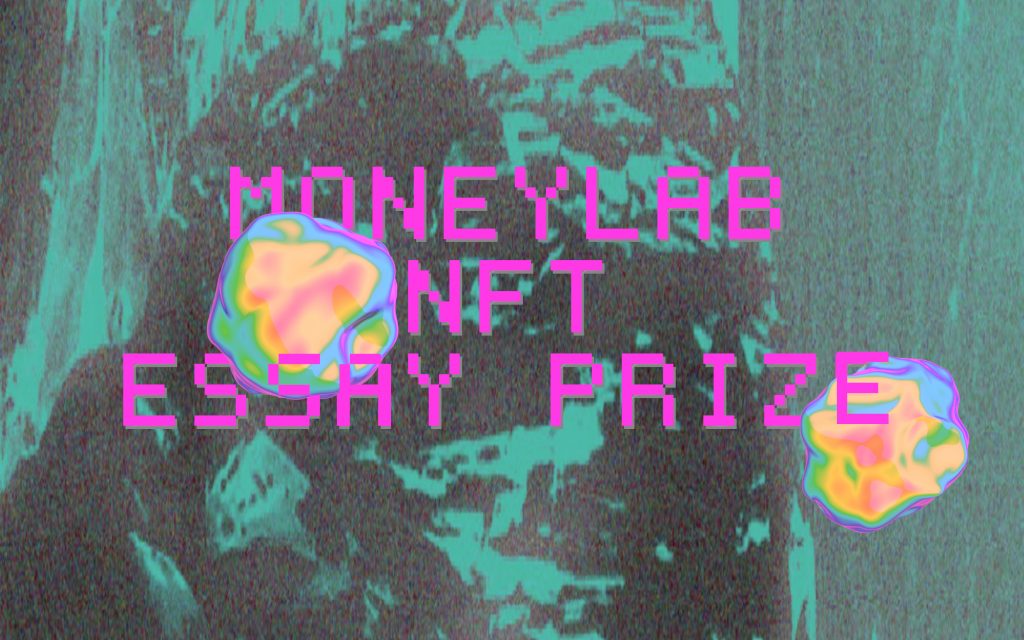
Popular search query: “Making Millions with NFTs!”
Empowerment or Trap? Jackpot or pocket money? You be the judge. Time to auction off our criticality. In a single year, NFTs have gone from obscurity to superstardom. Are NFTs, DeFi and gamified decentralized apps the new way for the disenfranchised to (finally) get paid? Or are they the gateway drug to a life of precarious hussle amidst capitalism’s death spiral? The web3 debate has defined the young Millenials/GenZ ‘Covid’ generations. What will the NFT lottery bring in this merciless economy?
We have heard from the experts, we have heard from the grifters, we have heard from boomer cynics and we’ve heard from the evangelists. Now we want to hear from young people struggling in this economy. What is the future you see on the other side of the NFT craze? Is it, finally, a way for creative people to survive and thrive? Is it a scam or just an immature futurist prototype? Is it destined for cooptation by the corporate and financial powers that be? Or is it a platform for new forms of solidarity?
The Moneylab network was initiated by the Amsterdam-based Institute for Network Cultures in 2013 to bring together thinkers, artists, technologists and activists to explore the future of money and value in a digital age. Since then, it has organized 12 conferences all over the world, published three readers and several pamphlets, hosted an active mailing list and maintained a well-read blog . The project has been taking a breather since June 2021, after hosting five fabulous pandemic-era conferences in cyberspace. But we’re back, with a whole different ball game!
We invite creative responses from people under the age of 30 to the question:
“Are NFTs the key to a generation’s empowerment, or a capitalist trap?”
Responses may be sent in the form of a conventional or experimental essay, including notes, aphorisms and dialogues of max. 2500 words, if possible packed with links, comments, memes and sound. Or a video/audio/interactive media composition of up to 15-minutes. We look for advanced speculative writing, critical theory and first-hand experiences with monetary experiments.
!! extended deadline for submissions: March 15, 2022 !!
Please send your submission to info@networkcultures.org. The MoneyLab board will assemble a diverse squad to read/watch the submissions and choose the most interesting, original and illuminating from among them. The first, second and third winners will each receive 250 euro/usd. The successful works, as well as honourable mentions, will be published on the MoneyLab blog and related media outlets. Authors will be invited to display, read and comment on their work at a special online meeting of the MoneyLab community.
Those who would like to discuss their ideas and get feedback ahead of the deadline are warmly invited to join the Moneylab Discord server, where a special channel (https://discord.gg/AXGJtqqX3V) has been established.
There will be a facilitated brainstorming and feedback session on Zoom on February 9 at 8 pm CET. This is the link: https://lakeheadu.zoom.us/j/99335974035.
In both Discord channel and Zoom session experts and members of the selection committee will be on-hand to offer supportive and constructive feedback.
For the MoneyLab board: Max Haiven, Ela Kagel and Geert Lovink
—
Jury Statement, April 14, 2022
Sorry to keep everyone of the MoneyLab community waiting for the outcome of the MoneyLab NFT Essay Price (https://networkcultures.org/moneylab/2022/01/21/moneylab-nft-essay-prize/). In the end, we only received five essays. After taking time for reading and reflecting on the submissions we have received, we, the jury members (Max Haiven, Ela Kagel & Geert Lovink) now want to share the outcome of our deliberations:
There will be no MoneyLab NFT essay prize this time.
We were disappointed and perplexed by the (lack of) response to our provocations and it led us to a number of questions. Had we framed the problem inaccurately? Were our questions irrelevant? Were we betraying our age in the way we approached the topic? Were young people too busy to genuinely respond? Is the format of the “essay” going extinct? And if so, what is the future of “rhetoric” in a digital age? Was our framing of NFTs as “a generation’s empowerment of a capitalist trap” too stark and binary?
On an even deeper level, we were alarmed by the narrow horizon of vision in the essays we read. It felt that the authors, in spite of being well-read and capacitous in their understanding, often seemed to see very little future, good or bad, beyond the confines of the present. Does this represent the triumph of capitalist realism, the vivification of the “slow cancellation of the future”? But then maybe it is simply that we, of a generation who remember a time before digitalized financialization, no longer have the sensitivities to see the forms that hope might take among a younger generation, who do not enjoy such memories. To paraphrase a now-famous meme, should we question our own expectionations? No! It’s the children who are wrong!
Yours,
Max Haiven, Ela Kagel & Geert Lovink


